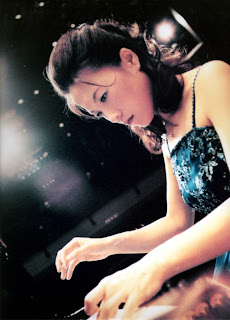What would young students “learn” when they learn how to play the piano?
What would young students “learn” when they learn how to play the piano?
Learning to be a piano player isn’t just learning how to play an instrument, especially for young students. Primarily, getting to love music is the most important life-long goal, and there are many things related to that.
The first step for students is to enjoy the music for themselves while they play. If they can truly enjoy the music for themselves then that is enough; however, beyond that, there is a next step we can offer to students: giving them opportunities to share their music with an audience.
It is always scary to be on the stage for any performer, regardless of their level, but for young students, it can be a greater challenge than others. Opportunities to perform their music can be valuable opportunities to learn how to handle the pressure of performing.
I found that many students have learned to love the experience of performing and the feeling of achievement from simple comments like “good job” from the audience and their parents. The experience of sharing something they love with others is a great source of joy, and having those experiences at an early age is very valuable.
For many performers, attaining self-satisfaction with their performance is not an easy thing to do. To reach this goal, their piece should be prepared to ‘the performance level.’ For me, this is not simply preparing the piece by just memorizing the score or perfecting the muscle memory to avoid mechanical mistakes. It is also about understanding what the composer wanted to communicate to the audience and expressing the beauty through their piece.
It is a high standard to achieve for the performer, and it takes hard work and requires self-discipline, critical thinking, and a willingness to improve.
A student can learn how to appreciate high-quality work and the value of discipline through everyday practice. However, in order to master a piece to the performance level, one needs proper lessons from professional teachers, and that is what I can offer to students.
These hard-working processes are valuable, as the students can build character; this is an effect that is advocated by other educators. For example, many colleges in the United States allow musical achievements – recordings of performances and competition participation – as college application supplement material, even for non-music majors. They do this because of the discipline and character that learning music fosters.
However, still, my primary goal is teaching how to love music for life. Everyone has different ways to enjoy music and piano, and everyone’s music journey is a long one. At the beginning of it all, anyone should start with learning how to press a key with a proper key attack, but so many great things can be achieved from that first simple step.
